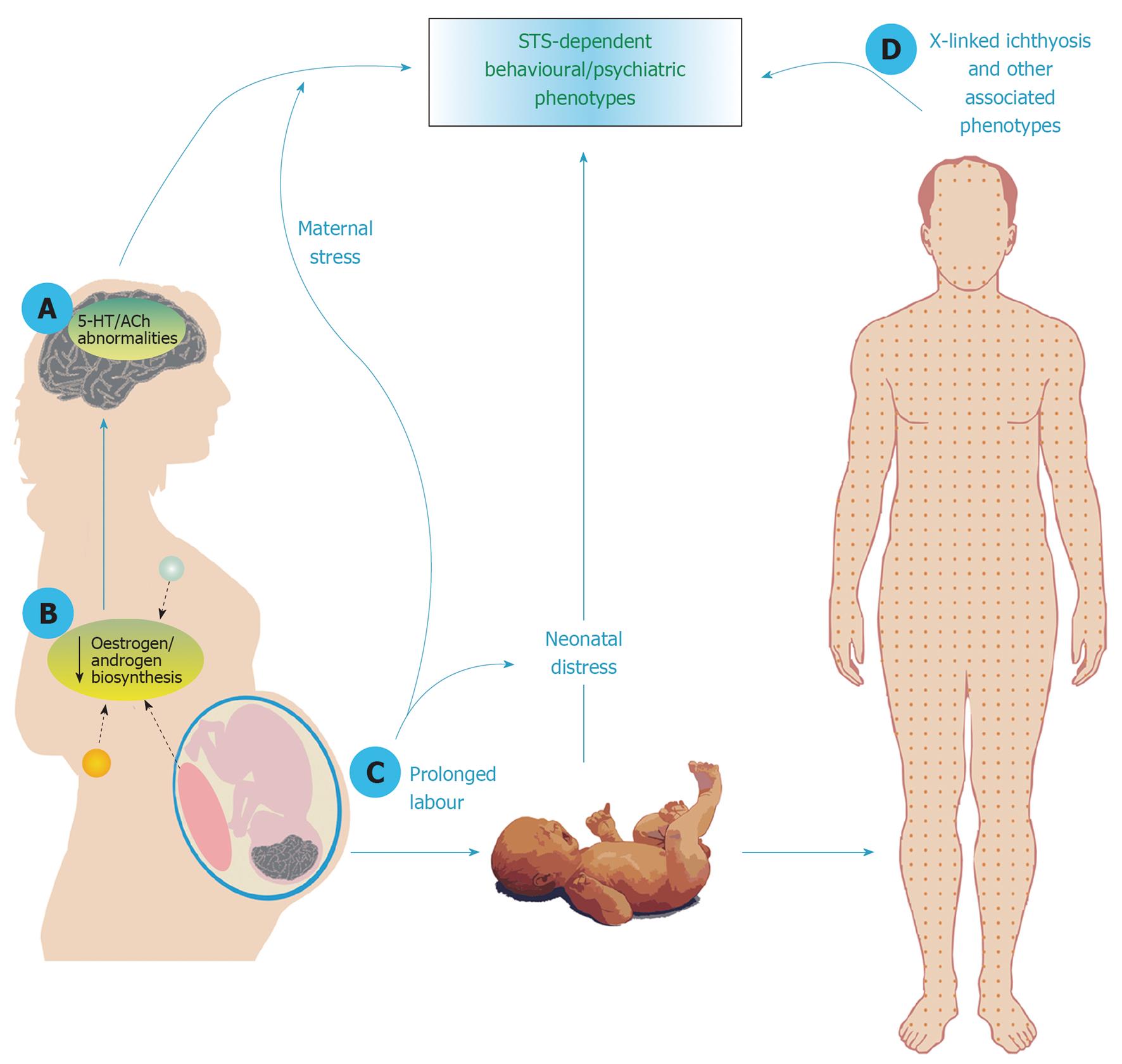Copyright
©2013 Baishideng.
World J Transl Med. Apr 12, 2013; 2(1): 1-12
Published online Apr 12, 2013. doi: 10.5528/wjtm.v2.i1.1
Published online Apr 12, 2013. doi: 10.5528/wjtm.v2.i1.1
Figure 1 Mechanisms through which steroid sulfatase deficiency could theoretically influence neurobehavioural and psychiatric phenotypes.
A: Loss of activity in the brain could directly influence neurodevelopment or ongoing function (e.g., via effects on the serotonergic or acetylcholinergic systems); B: Loss of activity in steroidogenic tissues (e.g., placenta, ovaries, mamary gland) could affect neurodevelopment and brain function via effects on levels of circulating oestrogens and androgens; C: High levels of stress associated with prolonged labour (as a consequence of enzyme dysfunction in the fetal portion of the placenta) could both potentiate the development of postpartum illness in the mother, and could adversely affect neurodevelopment in the offspring; D: Living with potentially stigmatising conditions such as ichthyosis and male pattern baldness could feasibly increase the risk of developing disorders such as depression and anxiety. STS: Steroid sulfatase.
- Citation: Trent S, Davies W. Cognitive, behavioural and psychiatric phenotypes associated with steroid sulfatase deficiency. World J Transl Med 2013; 2(1): 1-12
- URL: https://www.wjgnet.com/2220-6132/full/v2/i1/1.htm
- DOI: https://dx.doi.org/10.5528/wjtm.v2.i1.1









